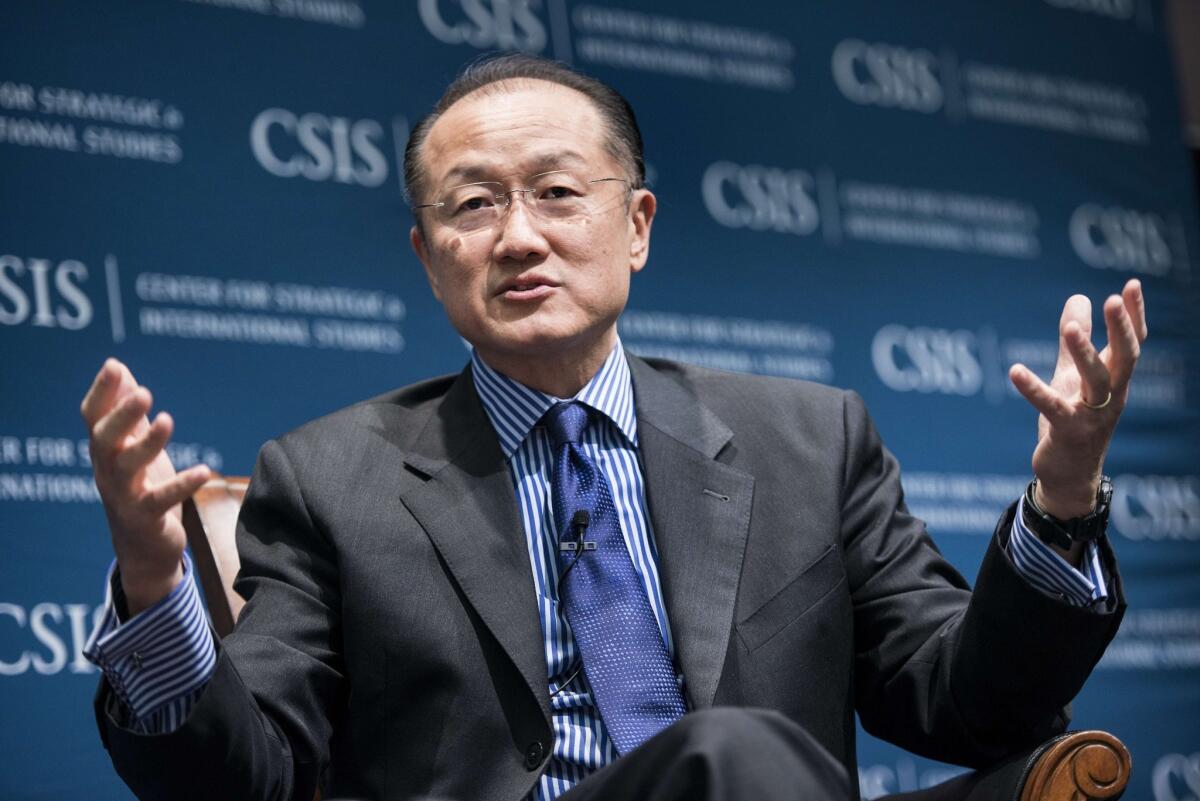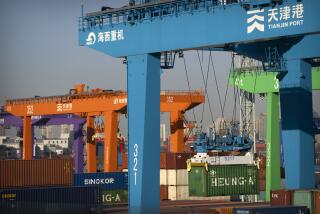Global economy at turning point as growth picks up, World Bank says

WASHINGTON -- The global economy is at a turning point this year as it shows signs of strengthening, with the U.S. and other developed countries expected to see stronger growth, the World Bank said.
“Most of the acceleration is expected to come from high-income countries, as the drag on growth from fiscal consolidation and policy uncertainty eases and private sector recoveries gain firmer footing,” the organization said in its latest Global Economic Prospects report, released Tuesday.
QUIZ: Do you remember the biggest business news stories of 2013?
Economies worldwide are forecast to expand 3.2% this year, up from 2.4% in 2013.
Developing countries such as China and India will grow 5.3% in 2014 -- compared with 4.8% the previous year -- regaining strength after two weak years, the World Bank said.
The U.S. and other high-income nations are turning a corner into more robust growth as well and will grow a combined 2.2% this year, the organization said.
Although the figure is not great, it’s a significant improvement over the 1.3% rate in 2013, when Europe was still struggling with its longest recession and the U.S. was grappling with higher taxes and government budget cuts.
“Growth appears to be strengthening in both high-income and developing countries, but downside risks continue to threaten the global economic recovery,” said World Bank President Jim Yong Kim.
One risk is the Federal Reserve’s decision in December to start reducing its monthly bond-buying stimulus program, which the report said has potential to “throw curve balls” at the worldwide economy.
The report said World Bank officials expected modest effects on developing countries from the “orderly tightening” of monetary policy by the Fed and other major central banks
But it said there could be problems if markets react negatively, as they did last spring and summer when the Fed was considering a pullback of its stimulus program and interest rates shot up. The higher rates drained investment from developing nations.
“Depending on the severity of the market reaction, capital flows to developing countries could be cut by 50 percent or more for several months” in 2014, the World Bank said. Such a reaction would hinder growth.
ALSO:
Retail sales up only slightly in December
Wells Fargo eclipses JPMorgan as most profitable U.S. bank
Detroit Auto Show: Carmakers showcase speed, strength and beauty
More to Read
Inside the business of entertainment
The Wide Shot brings you news, analysis and insights on everything from streaming wars to production — and what it all means for the future.
You may occasionally receive promotional content from the Los Angeles Times.











